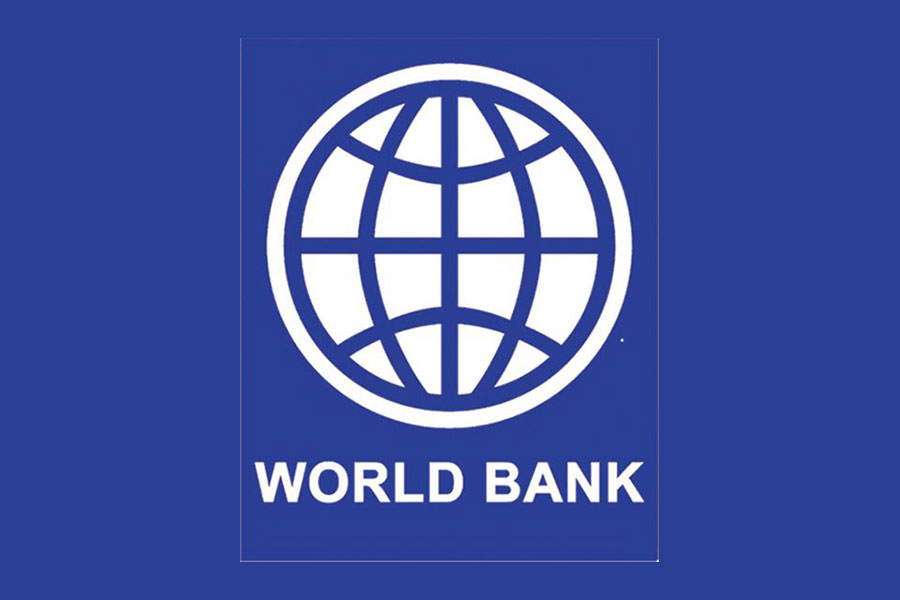
Radar | Feb 22,2020
Virtual meetings are taking place across the globe as well as in Ethiopia’s most decisive office - the Office of the Prime Minister.
Usually accompanied by ministers and high-level officials, on Thursday, March 27, 2020, Prime Minister Abiy Ahmed (PhD) sat by himself in his renovated office and held a virtual meeting with the COVID-19 Ministerial Committee on the necessary next steps.
One of the calls was for medical professionals to be on standby should the country demand their services. But volunteers inside and outside the country have started working on awareness-raising and fundraising campaigns some time ago.
Medical professionals, communication experts, tech whizzes and students alike are coming up with solutions to the problems the country expects to face soon. Where data is lacking, the country’s tech hubs are stepping in to fill in the gap.
Following the call-to-action by the Prime Minister's office in early March, the Information & Communication Technology Association Ethiopia (ICT-ET) started mobilising and reaching out to companies and tech professionals. Within three days hundreds of volunteers and more than 100 companies were unified as the COVID-19 Response Team under coordinators Mike Endale from the United States and Yilkal Abate from Ethiopia.
The response team has many different divisions. Part of the team works on gathering information, ranging from where the country’s 3D printers are located to the latest guidelines by the government. A second team is working on a platform for tracking the number of people affected and under quarantine.
The team works remotely and also on the ground with the Ministry of Health, the Ministry of Innovation & Technology and the Prime Minister's Office.
Another example is Ewenet Communications. Established five months ago by two engineering students and one marketing expert, this company is ready to roll out its newest trademark software named Corona. The new application was conceptualised long before the first confirmed case in Ethiopia and the layout is simple.
Filled with mostly static information about the Coronavirus, it gives the user information on symptoms, prevention and transmission methods and presents announcements obtained from the Ethiopian Public Health Institute (EPHI), the Ministry of Health, Centres for Disease Control (CDC) and the World Health Organization (WHO).
The application includes a Frequently Asked Questions section for information specific to Ethiopia's context and proposes to be managed by Ewenet Communications and EPHI. The team works from their respective homes, only communicating by telephone.
Creatives work out of Iceaddis's co-working space on the fifth floor of the Zewdu Building in Bole Medhanialem.
Communication methods are no different at the 317Sqm compound that serves as Afritech Development’s office behind DH Geda Tower, which is mostly vacant these days. Communication takes place over Skype or by phone.
Established with a capital of 30,000 Br over two years ago, the enterprise has built a website that provides information on the Coronavirus and boasts over 4,000 views so far.
A team of 20 has finalised the development of the portal that will be directly linking customers with small businesses and different farmers with customers in Addis Abeba without collecting a service charge or a delivery fee.
Samuel Mekonnen, founder and CEO of the company, says this is done to avoid price inflation, provide products at government-set prices and keep small businesses afloat should the country go into lockdown.
Currently, they are negotiating to engage businesses and sign them onto the application. The application is in Amharic and English, while Tigrigna and Afan Oromo are being added.
Delivery is free, and while partners are welcome to assist in the initiative, Afritech is determined to cover all the costs if need be.
Not far away from Afritech on Namibia Street, Samuel Fekade, project lead at BlueMoon gets a team of 50 innovators together to make face masks. The goal, he says, is to produce 1,000 face masks every day. The tech hub works on 3D printing, website design and mobilising volunteers. Still, the shortage of masks in the country has demanded their full attention momentarily.
The innovators plan to make a total of 500,000 face masks. Spending close to 8,000 Br from their own pockets for every 1,000 masks, the team is looking for support to reach this goal. The masks are produced by the local garment manufacturers and are sanitized before distribution.
Initially targeting clinics and hospitals with shortages, the team will move to busy streets like Mercato where individuals exhibiting flu-like symptoms are likely to travel through. They gave out a total of 1,000 masks to Yekatit and Menelik hospitals on March 25, 2020.
Wubrest Tesfaye (MD), junior programme staff member at the Center for Reproductive Health & Training Center, says that there are benefits to wearing the masks.
Though the N95 respirators and surgical masks are the ones recommended explicitly for health professionals as they’re primarily designed to protect the wearer from airborne particles, other types of masks can protect the wearer as well, especially in a country where social distancing is hard to implement.
It is important to know that using masks and gloves comes with its own standards and discipline. If touched by hands and put back on they may cause more damage than help, according to her.
"However, unless the Ethiopian Food & Drug Authority approves the masks," said Wubrest, "health professionals in close contact with patients shouldn't be using them."
Some tech movements do not have a physical presence, but their impact is just as substantial. When the Hakim Facebook page was started two years ago by Abraham Araya (MD), it was to create a platform where health professionals could share their day-to-day experiences. The page is used to gather opinions and questions from different professionals and non-professionals in the health sector and is guided by an editorial standard.
Now, this online platform has more than 130,000 followers and shares verified information about the Coronavirus, as well as opinions from people in the healthcare sector. Administered by medical doctors, the information on the page is verified and sometimes translated from different languages when it is necessary.
It does not end there. WhatsApp groups, Facebook live sessions and Twitter accounts are also chipping in. Selam Mussie, a media and communications professional, is in one such group.
Composed of professionals from the health to the education sectors, the group is primarily helping in verifying information, changing it into a more palatable form for the general public and translating it into different languages.
Their work includes monitoring call centres and making sure that they are functional and updated according to guidelines. Their Telegram page, Covid-19 Ethiopia, is the platform they use to share different informational posts related to the virus in different languages. The group is made up of 18 people, each using their different contacts to create a comprehensive source of information and support in disseminating information coming directly from the Ministry of Health.
YetenaWeg, a twitter page run by two Ethiopians, Ermias Kacha (MD) and Fitsum Tilahun (MD), talks about different issues related to the virus. Alongside a bi-monthly podcast, the medical doctors also run a website where they translate academic writings into Amharic.
Your Ethiopian Professionals Network (YEP), a group based in the United States that features inspirational speakers, hosts educational sessions and provides networking opportunities for Ethiopian professionals, has also shifted its platform to creating different digital events on the subject of the Coronavirus by working with health professionals in the Ethiopian community.
Even social media influencers in the city, like Abyssinia Vines, the famous trio behind the music "Dehna Nesh, Endet Nesh," a Youtube video with nearly three million views, have jumped in. They have created short videos busting Coronavirus myths and other similar topics.
The internet and globalisation have been both a blessing and a curse says Marqos Lemma, founder of one of the first innovation and tech hubs in Ethiopia, Iceaddis.
"The virus spread so rapidly, because we're very interconnected," he said. "But it'll also be the reason why we have a better chance to beat it than ever."
If there is new information, everyone can access it within seconds. People can still work from home at a time like this, and society does not have to stop.
Azeb Asaminew (MD), psychiatrist and editor on the Hakim page, advises that people keep their sources of information limited to a few trustworthy outlets and limit their physical interactions even more.
It is not just the tech sector that is banding together at this time of crisis. Groups and individuals are popping up all over social media with call-to-action campaigns.
Hadra Ahmed and her friend started to put handwashing stations across the city, especially around taxi stops where a lot of people gather. Nubia Communications and Setaweet Ethiopia, a feminist research and training company in Ethiopia, is giving them institutional support, and the volunteers are placing handwashing stations along with banners and stickers around taxi stations.
They have started talking to different hotels to get sponsors for the handwashing stations and also plan to approach gulitowners, streetside vegetable vendors, to deliver their produce to the condominiums near where they work while making sure that the vendors have sanitizer, gloves and masks to protect themselves.
A simple Facebook post by Fikir Getachew attracted a group of 65 composed of university students, health officers and teachers to encourage people to stay home by running errands for them free of charge. They pay electric and water bills, buy groceries and drop them off.
In his latest piece for The Financial Times, Prime Minister Abiy Ahmed has asked the global community to band together and help Africa in this time of need for a lasting solution to eradicate the Coronavirus. While that is yet to be seen, Ethiopians are stepping up in the meantime.
PUBLISHED ON
Mar 28,2020 [ VOL
20 , NO
1039]

Fortune News | Jan 07,2024

Radar | Jun 25,2022

Radar | May 04,2024

Radar | Aug 20,2022

Radar | Mar 07,2020

Dec 22 , 2024 . By TIZITA SHEWAFERAW
Charged with transforming colossal state-owned enterprises into modern and competitiv...

Aug 18 , 2024 . By AKSAH ITALO
Although predictable Yonas Zerihun's job in the ride-hailing service is not immune to...

Jul 28 , 2024 . By TIZITA SHEWAFERAW
Unhabitual, perhaps too many, Samuel Gebreyohannes, 38, used to occasionally enjoy a couple of beers at breakfast. However, he recently swit...

Jul 13 , 2024 . By AKSAH ITALO
Investors who rely on tractors, trucks, and field vehicles for commuting, transporting commodities, and f...

Jul 5 , 2025
Six years ago, Ethiopia was the darling of international liberal commentators. A year...

Jun 28 , 2025
Meseret Damtie, the assertive auditor general, has never been shy about naming names...

Jun 21 , 2025
A well-worn adage says, “Budget is not destiny, but it is direction.” Examining t...

Jun 14 , 2025
Yet again, the Horn of Africa is bracing for trouble. A region already frayed by wars...